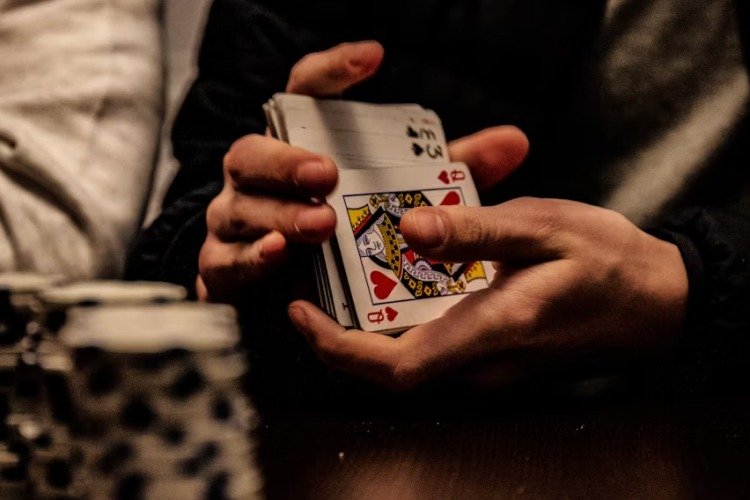3-Card Poker: A Fast-Paced Twist on a Classic

Poker. The name conjures images of smoky back rooms, high-stakes showdowns, and the thrill of the bluff. Just like the strategic thinking involved in poker, finding the right platform for online play is key — much like choosing the right hand, savvy players often look for resources like WPD. While 5-card Poker reigns supreme in many circles, there’s a faster, more accessible variation that’s gaining popularity: 3-card Poker. This streamlined version of Stud Poker offers all the original excitement in a quicker, more digestible format, perfect for seasoned poker players and newcomers looking for a fun and engaging casino experience.
A Brief History of 3-Card Poker
Traditional Poker’s origins are shrouded in mystery, with theories pointing to a 10th-century Chinese emperor, an ancient Persian game called As Nas, and the European game Poque, which made its way to America with the French. However, the 3-Card Poker is a relatively modern invention. Created by Derek Webb in 1994 and patented a few years later, Webb’s goal was to create a “speed poker” game that could be enjoyed without the multi-hour commitment often associated with traditional Poker. This innovation brought fresh energy to the casino floor, offering a quicker and more dynamic alternative.
How to Play: A Breakdown of the Bets
3-Card Poker uses a standard 52-card deck (no Jokers). It’s a player-versus-dealer game, adding an extra layer of excitement. The core gameplay revolves around a few key betting options:
-
Ante: This is the initial bet placed before any cards are dealt. It’s a bet that your hand will beat the dealer’s.
-
Play Wager: After seeing your three cards, you have a choice. If you think you have a strong hand, place a Play wager equal to your Ante bet. This wager goes head-to-head against the dealer’s hand. If you don’t like your hand, you can fold, forfeiting your Ante.
-
Pair Plus: This is a separate bet based solely on your hand’s strength. You win if your three cards form a pair or better (pair, flush, straight, three-of-a-kind, or straight flush). It’s independent of the dealer’s hand.
-
Play Both (Ante & Pair Plus): As the name suggests, you can combine both the Ante and Pair Plus bets. This gives you two chances to win on a single hand.
-
Ante Bonus: This bonus bet is paid out even if the dealer wins or doesn’t qualify, provided you have a qualifying hand (straight, straight flush, or three-of-a-kind). It adds an extra layer of potential reward to the Ante bet.

The Rules of Engagement
- Placing Bets: Each player starts by placing an Ante bet, a Pair Plus bet, or both.
- Dealing the Cards: The dealer deals three cards face down to each player and themselves.
- Player’s Decision: Players examine their three cards. If they believe their hand is strong enough to beat the dealer, they place a Play wager equal to their Ante. If not, they fold, losing their Ante bet. If they placed a Pair Plus bet, they can also place their cards face down in the Pair Plus area.
- Dealer’s Reveal: The dealer reveals their three cards and forms the best possible hand.
- Dealer Qualification: The dealer must have at least a Queen-high to “qualify.” If the dealer doesn’t qualify, the Ante bet is paid out to the player, and the Play bet is a push (returned to the player).
- Hand Comparison: If the dealer qualifies, the player’s hand is compared to the dealer’s. If the player’s hand beats the dealer’s, both the Ante and Play bets are paid out 1:1. If the dealer’s hand wins, the player loses both bets—a tie results in a push.
Payouts
The payouts for Pair Plus and Ante Bonus bets vary, but here’s a common example:
Pair Plus Payouts
-
Straight Flush: 40 to 1
-
Three of a Kind: 30 to 1
-
Straight: 6 to 1
-
Flush: 3 to 1
-
Pair: 1 to 1
Ante Bonus Payouts
-
Straight Flush: 5 to 1
-
Three of a Kind: 4 to 1
-
Straight: 1 to 1
Key Terms to Know
-
Action: The total amount of money currently in play on the table.
-
House Edge: The casino’s statistical advantage over the player is usually expressed as a percentage.
-
Live Game: A 3-Card Poker game played in a physical casino with a live dealer.
3-Card Poker: A Game for Everyone
Whether you’re a seasoned poker pro or a complete beginner, 3-Card Poker offers something for everyone. Its fast-paced nature makes it a great option for quick thrills, while the strategic elements provide enough depth to keep experienced players engaged. It’s a social game, easy to learn, and offers the potential for exciting wins. So, the next time you’re looking for a fun and engaging casino experience, give 3-Card Poker a try. You might just find your new favorite game.